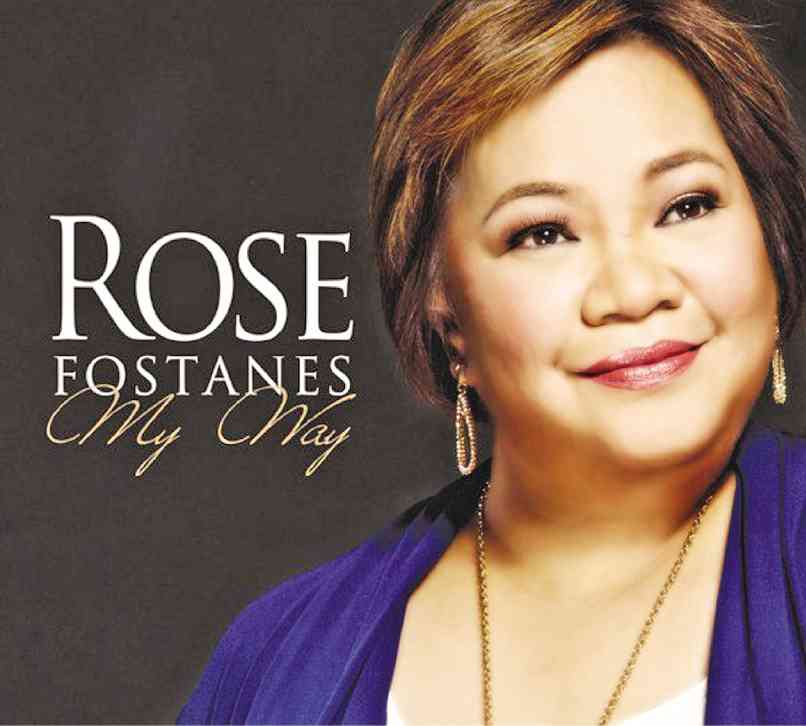‘X Factor Israel’ champion breaks the mold
Rose Fostanes, “X Factor Israel’s” grand champ, is the first to admit that she doesn’t have the cookie-cutter attributes of a typical Filipino singing star—she’s portly, physically “unremarkable” and, at 47, is no spring chicken. And, unlike Susan Boyle, who wowed the “Britain’s Got Talent” crowd in 2009 at age 48, she has a more significant love life: She’s in a 30-year relationship with another woman.
To be honest, our expectations for Fostanes’ debut album, “My Way,” weren’t very high because, these days, Pinoy talent-search alumni are a dime a dozen—and, often, the public’s interest in them wanes as soon as their novelty subsides.
Because Fostanes is partial to standards and jukebox staples, we expected to hear bland and mushy renditions with wide-gapped vibratos. —But, boy, were we surprised when we finally listened to it!
Intuitive singer
As the album vividly demonstrates, Rose is an intuitive singer who knows when her curlicues are on the verge of sounding overdone. She cleverly balances style with interpretation, which is often sacrificed by younger, pa-impress singers.
In Paul Anka’s “My Way,” her winning song, she doesn’t just burst with confidence, she also grooves and growls as she scales its high notes with her raspy alto.
We’ve always stressed the importance of avoiding shoddy work among local recording artists, because an album immortalizes a singer’s performance—including bad diction, which is readily “curable” in a controlled setting.
Minor quibbles
This is the down side of Rose’s collection—its diction gaffes are too distracting to ignore: She says “deed” for did (“My Way”); “rader” for rather (“Rain”); “owfen” for often, and “leave” instead of live (“This Is My Life”). These are just minor quibbles, however.
In her album, Rose sings the standards in show-stopping fashion, minus the shrillness of their crowd-pleasing stratospheric sections—from the Shirley Bassey-channeling “This Is My Life” (which is given an appropriately dramatic arrangement by Benjamin Pating Jr.) to George Canseco’s appealing “Rain.”
Her fetching version of Sarah Geronimo’s “Forever’s Not Enough” has a mature and lived-in ring to it, while her remake of Didith Reyes’ “Bakit Ako Mahihiya?” is significant for the urgently rendered dramatic lead-in to the chorus.
Fostanes’ originals (“If This Is Love,” “Rise”) put the rock-tinged huskiness of her voice to good use and make her sound youthful.
The album, Rose says, is a glorious reminder of her favorite quote from George Eliot, the male pseudonym of Victorian-era novelist Mary Ann Evans (“Adam Bede,” “Silas Marner”): “It’s never too late to be what you might have been!”
